Despite the quality education found at Bethel University, obtaining a degree without being judged for my faith is priority.
Emily Forster | For the Clarion
THE FOLLOWING IS AN OPINION PIECE AND DOES NOT NECESSARILY REFLECT THE VIEWS OF THE CLARION, ITS STAFF OR THE INSTITUTION. IF YOU WOULD LIKE TO SUBMIT A RESPONSE OR AN OPINION PIECE OF YOUR OWN, PLEASE CONTACT EDITOR IN CHIEF JARED NELSON AT [email protected].
Sitting in my Getsch dorm room, surrounded by bins full of sweaters, index cards and peanut butter, I couldn’t be more sure of my decision to study at Bethel University in the fall of 2014.
Being a Christian all my life, I never thought my faith would conflict with classes, professors, students and various events at a Christian university. I never realized it would negatively cloud my entire college experience, or that I would leave two years later for the same reason I came: my Christian faith.
I was raised Roman Catholic, worshiped at Mass each week and attended the local public school.
No one could have anticipated the events leading up my decision to withdraw from the university I called home. Once my journalism final ends at 4:45 on Thursday, I will be gone.
During interim of 2015, I took Christianity in the Western Culture. The first eight days were about Catholicism, while the last eight days were confusing as I learned what Protestantism is and how it affects me at this university. During this course and beyond, I passionately studied theological books including “An American Dialogue: A Protestant Looks at Catholicism and a Catholic Looks at Protestantism” by Robert McAfee and Gustave Weigel, “The Doctrinal Conflict between Roman Catholic and Protestant Christianity” by Mario Colacci, and many other books that were not required.
In that same class, the professor asked all 40 students if there were any Catholics in the room, subsequently asking if they felt it challenging to study at Bethel. Eyes darted around the room.
Everyone wondered who would speak up. I slowly raised my hand.
With a quiet voice, I stated that I, as a Catholic, did not find it hard to study at Bethel. Quickly my voice fell silent. The professor smiled gently. Class was dismissed for the afternoon, I still had no idea I would feel my Catholic faith threatened in the coming months.
Walking up the stairs in the Hagstrom Center, I realized not a single Catholic parish is listed on that huge, laminated poster of nearby churches. Same with the schedules of churches in the entrance in each dorm building. There was no community for Catholics at Bethel, no resources for us.
An uninformed professor said that except for the pope, we don’t see monks today like we used to. The pope is the leader of the Catholic Church and the successor of the apostle St. Peter, not a monk.
A professor had me read aloud from a handout of his notes. I had to read this: “We can’t go back to the Roman Catholic Church.”
I felt as if I couldn’t breathe.
Tears welled up in my eyes in front of 10 classmates and I blinked them away until class ended.
While away from the campus for the weekend at a student event, going to Mass was not an option. I walked almost two miles to a Catholic Church for Mass. No one knew.
Leading up to the fall of 2015, another Catholic girl and I brought St. Paul’s Outreach (SPO), a Catholic outreach program for colleges, to Bethel. We conducted weekly activities and meetings for other Catholics. While I received initial support from Bethel pastors, their support slowly fell away as the year progressed.
I’ve heard Bethel claims that 2.9 percent of its students are Catholic, but many leave the Catholic Church after coming to college. Or they leave Bethel.
Reading the Affirmation of Faith Bethel requires all faculty to sign, I grasped why no Bethel professor is Catholic: unlike the covenant, the faith statement contradicts Catholic doctrine in more than one instance. Students can be Catholic, professors cannot. I’m not asking for priests, but if there are Catholic students, there ought to be Catholic professors.
My professor of Christian theology, when attempting to explain the Nicene Creed, read a version of the creed that was altered from the one created by the First Council of Nicaea in 325. When I pointed this out, the professor was surprised and said he had just Googled it. By the end of the course, the professor suggested I leave Bethel for St. Thomas. I ran with the suggestion, and plan to begin my fall semester at a different school next year — Not St. Thomas, though. Don’t worry.
By no means am I angry with Bethel University, the students or the professors. It is my choice to leave the school, just as I chose it, but Catholic students will continue to be hurt if we treat them as if their religion is “other,” less than theirs, or not good enough to save them.
When someone says they’re Catholic, don’t make them say it with hesitation, but rather with pride. And please don’t respond with a story about how someone you know was Catholic and left the Catholic Church for reasons X and Y.
I took a chance at this Evangelical Converge Worldwide University, I signed the covenant and upperclassmen ran to my car to haul in my bins for Welcome Week. I was open-minded about this Christian University. I expect to be treated with similar open-mindedness. I am not asking everyone to become Catholic, I am simply asking everyone to be respectful to those of other beliefs and backgrounds.
Pictured here with Archbishop Hebda at Easter Vigil Mass at the Saint Paul Cathedral, Emily Forster is leaving Bethel.
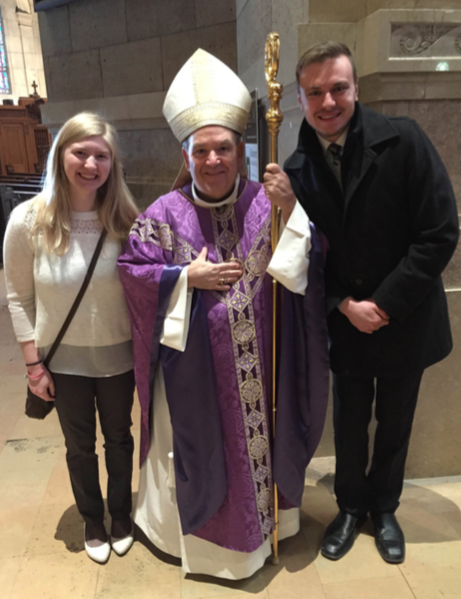
Pictured here with Archbishop Hebda at Easter Vigil Mass at the Saint Paul Cathedral, Emily Forster is leaving Bethel. Photo courtesy of Emily Forster.


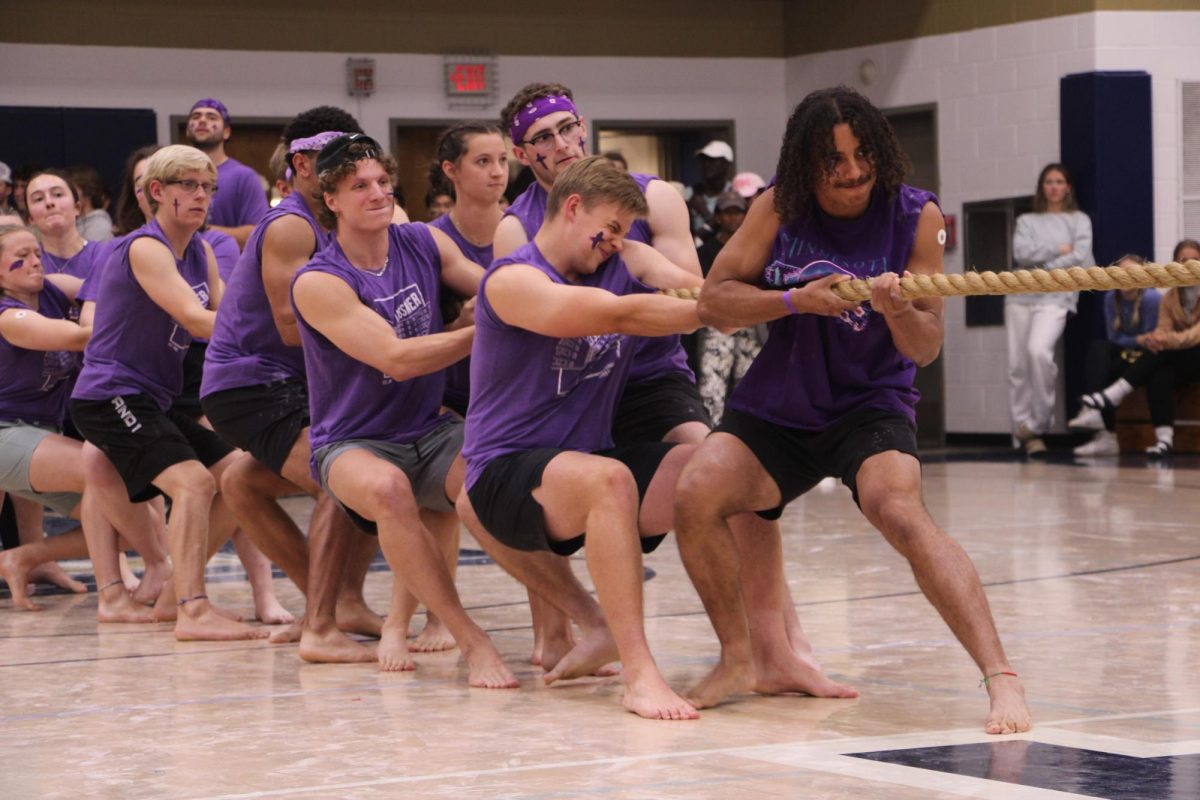



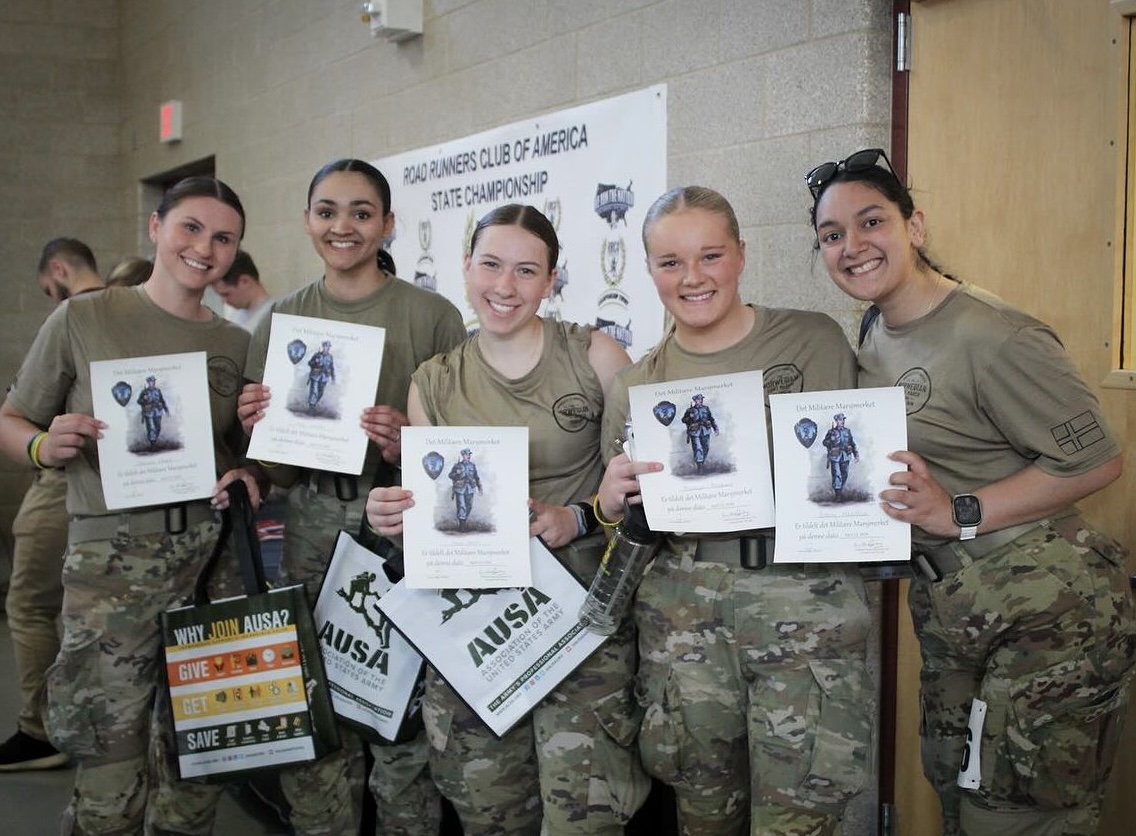

![Senior Bethel receiver Micah Niewald sheds a would-be tackler on his way to a touchdown in the Royals’ 73-8 win over Augsburg Saturday. Niewald sped his way to two touchdowns in the win, tallying 62 yards after the catch between the two scores. “Knowing I can outrun the guy that’s chasing me is a big thing,” Niewald said. “That’s going back to [strength and conditioning] Coach Meyer and everything we do in the summer and off-season.” | Photo by Carl Schumland, Bethel Athletics](https://thebuclarion.com/wp-content/uploads/2024/10/3J9A1632-1200x800.jpg)

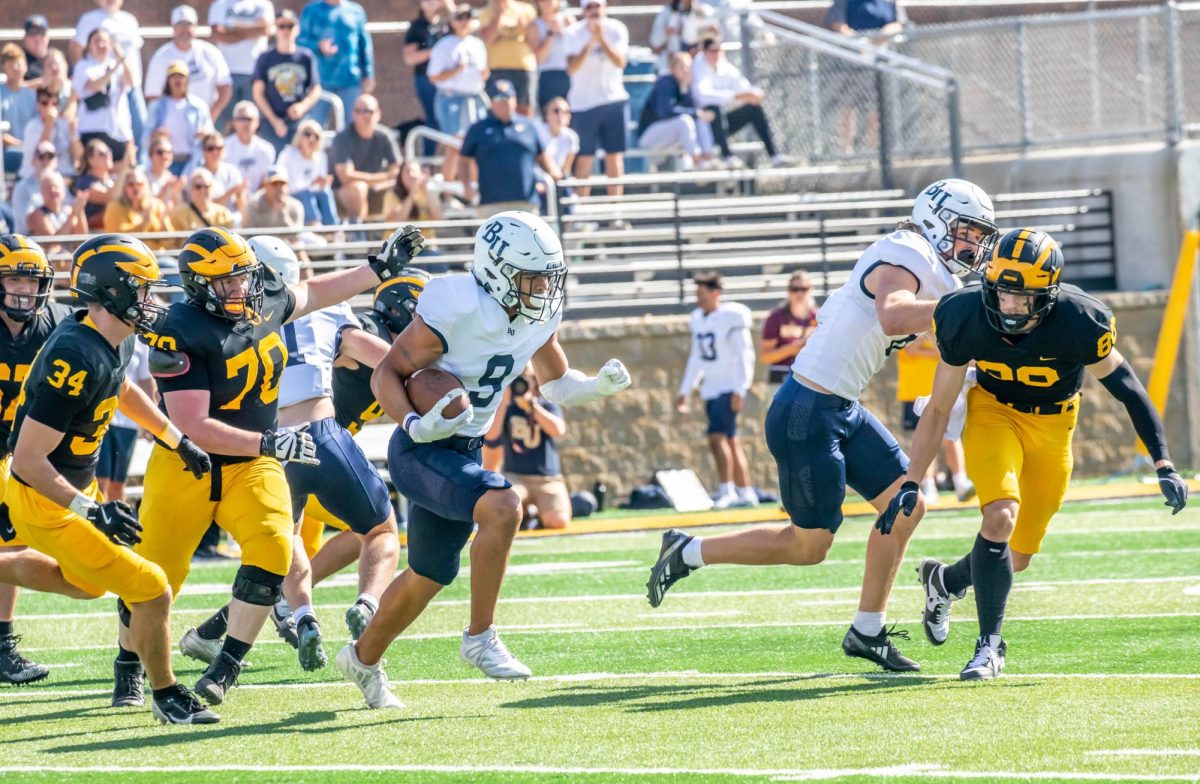





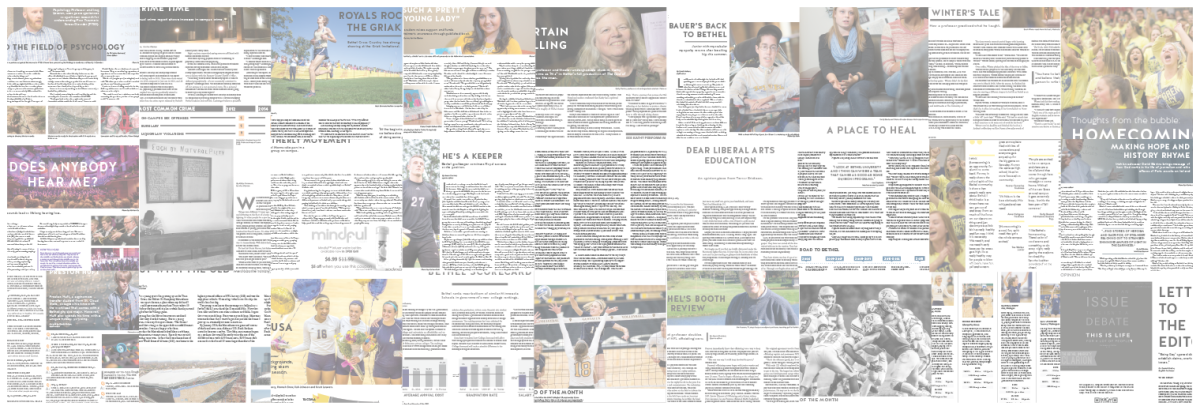




T. L. Arsenal • May 25, 2016 at 4:18 am
I’m a bit confused… the version of the Nicene Creed that is used in the whole Church (Roman Catholic or otherwise) is not the version produced at the Council of Nicaea in 325, it is the version which was altered and ratified at the Council of Constantinople in 381. The version which the Roman Catholic Church uses was then altered again with the addition of the Filioque toward the end of the first millennium, which precipitated (at least ostensibly) the Great Schism between the East and the West in 1054.
Mitchell Elliott • May 23, 2016 at 11:05 pm
Is it really all that surprising that a university with a relatively conservative Protestant heritage still somewhat sides with the reformers on these sorts of things? Sure, it seems some of your professors are misinformed about some things pertaining to Roman Catholicism (side note: I’m not seeing why the issue of the different forms of the Nicene Creed is all that important here), or maybe they even just mis-spoke, but, regardless, I think it is unrealistic to go to Bethel as a Roman Catholic and expect your toes to not be stepped on theologically in some ways. The same would work the other way around with a Protestant going to a school with a Roman Catholic heritage (or even, as was my case, simply being *more* theologically conservative/fundamentalistic and going to Bethel).